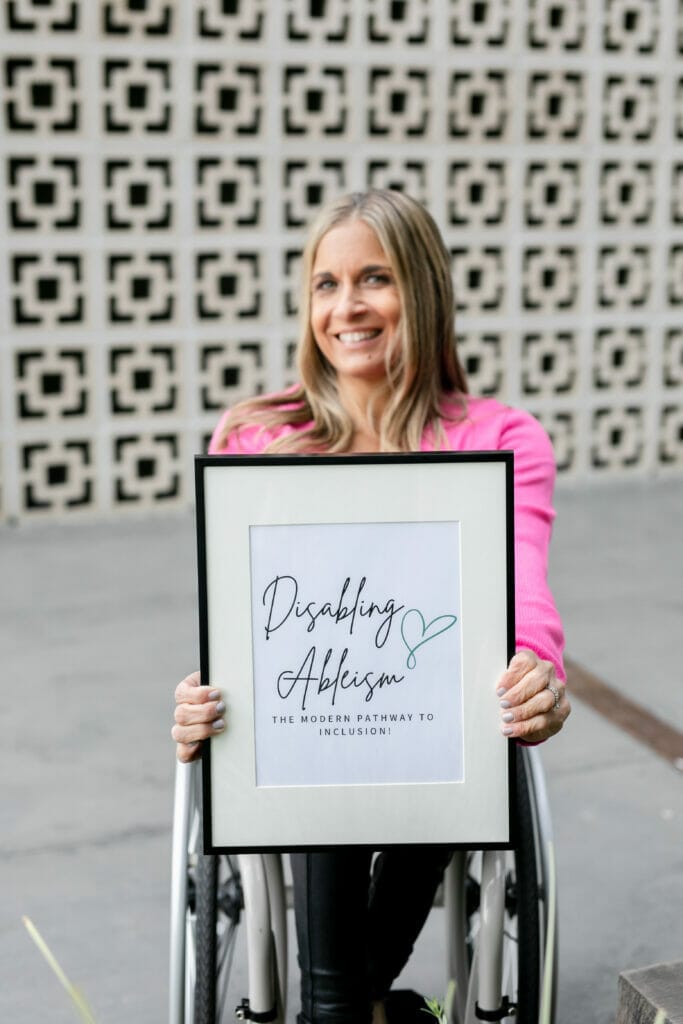
#Ableism is a prejudice that leads to a discrimination against people with disabilities. It is based on the belief that “typical abilities” are superior. It shows up in pity, exclusion, stigmas, neglect, stereotyping, bias, language, microaggressions and lack of accessibility to the resources and opportunities for people with disabilities.
Ableism perpetuates the marginalization of individuals with disabilities and it limits access to things like education, employment, healthcare, infrastructure, planes, boats, homes, venues, products, services and many other basic human needs we all strive for and deserve to attain.
Ableism often goes unnoticed, unchallenged and overlooked because it is deeply ingrained in our societal “norms.” It appears in automatic/reflex actions/reactions as the: no way, absolutely not, do not include, do not befriend, do not adapt, do not invite, do not believe in, do not love, do not hire, and it results in the fear and pity lens in which disability is seen through.
Ableism ultimately leads to the feeling or belief that disability is a bad thing and it needs to be fixed for someone to be whole or acceptable in our society.
In starting and continuing the work of disabling ableism, it is important to learn, understand and prioritize the rights that people with disabilities have fought for such as: The Rehabilitation Act, The Americans with Disabilities Act, Title IX, Affirmative Action, and all other legislation that protects and affirms the rightful place of people with disabilities in our society and the workplace.
We can disable ableism by recognizing and lifting up the intersectionality of disability in our lives and calling out the way ableism intersects with other forms of discrimination, such as racism, and sexism. It’s crucial to recognize and challenge ableism in all its forms, along with all other “isms” by accepting that a person can experience multiple forms of oppression at the same time.
We must commit to an unbroken, unending and undying endeavour for inclusive educational opportunities, equitable employment practices, and for valuing the respect of all diversities and individuals, regardless of their ability, race or gender. AND, This ALWAYS includes a consistent and continuous promotion and advocacy for inclusion at work, accessible products, services and infrastructure.
For more on our Ableism Microlearning Series ?? https://lnkd.in/gcVKNmRz
ID: Alycia wearing pink sitting in wheelchair holding black picture frame that says disabling ableism the modern pathway to inclusion.